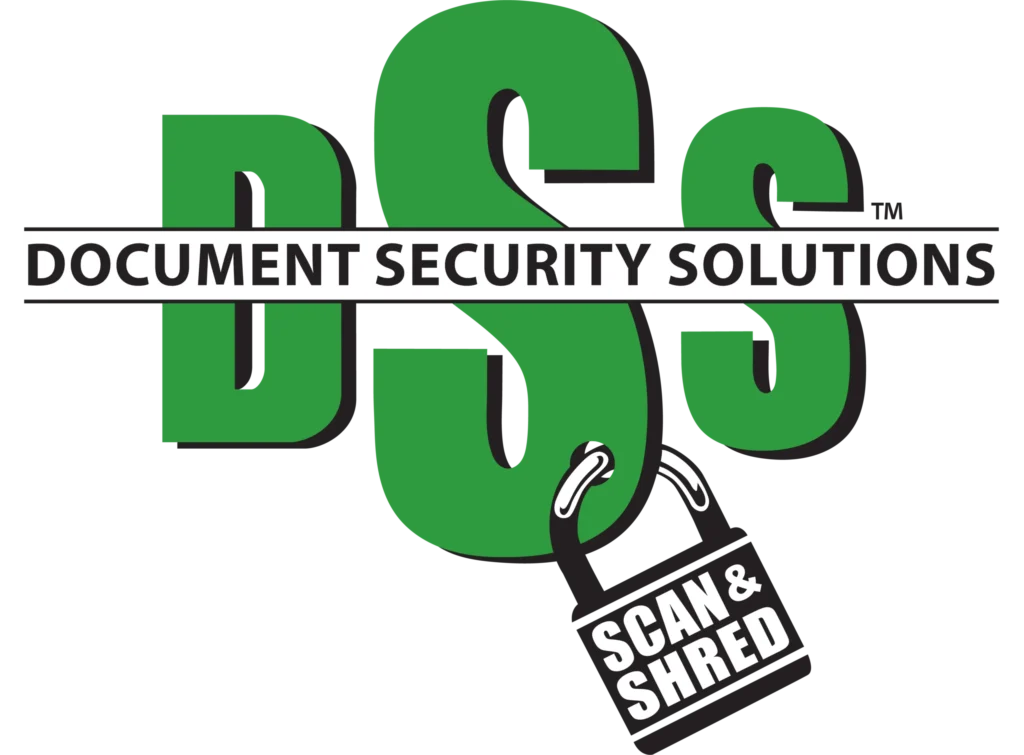Ever thought your office clutter could be killing trees? You’re not alone. We’re exploring the environmental impact of going paperless with document scanning services. By embracing technology, you’ll not only clear that desk but also contribute to a greener planet. So, stick around and let’s unravel this sustainable solution together.
Understanding The Concept: What Is Document Scanning
Let’s delve into what document scanning is and how it’s transforming our approach to managing paperwork. Document scanning, in its simplest form, is the process of converting physical documents into digital formats. It’s an integral part of modern document management strategies and plays a crucial role in reducing our reliance on paper.
Where does scanning accuracy come into play? Well, you’ve probably dealt with scanned documents that were hard to read or had missing information. That’s where high-quality scanners and software are vital-they ensure every detail is captured accurately and clearly.
Not only does this improve efficiency by making file retrieval faster and easier, but it also has significant environmental benefits. By going digital, we’re cutting down on the need for paper production-a process that contributes to deforestation and pollution.
Moreover, digitization allows us to repurpose or recycle existing paper resources instead of letting them sit idle in storage facilities or landfills. In essence, by adopting document scanning practices within your daily operations, you’re embracing a more sustainable future-one where work gets done efficiently without harming Mother Nature.
The Role of Technology in Document Scanning Services
You’re about to delve into the exciting realm of technological advancements in document scanning, where AI and digitization are rewriting the rules. With the evolution of scanning technology, we’re not just conserving paper; we’re greatly reducing our environmental footprint by eliminating waste and inefficiency. But it’s not all just about going green-security features in this tech revolution ensure your data remains confidential and safe from prying eyes, offering a sustainable and secure solution for today’s digital age.
Advancements in Scanning Tech
Modern scanning technology’s come a long way, hasn’t it? Now you can digitize an entire office’s worth of papers in less time than ever before. With the advent of high speed digitization, you’re not only saving time but also significantly reducing your carbon footprint. Scanning accuracy is another game-changer- no more worries about lost files or misreads. Each document is precisely replicated in digital form, contributing to a sustainable solution for managing resources.
AI and Document Digitization
Incorporating AI into digitization processes has revolutionized the way we manage our files, hasn’t it? But beyond convenience, think about the environmental implications. Going paperless means reducing deforestation and carbon emissions from paper production. It’s a sustainable solution we can all get behind.
Consider these perks of AI-powered digitization:
* Unmatched AI accuracy in scanning and data extraction.
* Time-saving automation that minimizes energy usage.
* Ensuring digitization ethics, like safeguarding confidential information.
However, remember to use ethical AI systems that respect privacy rights. Let’s harness this technology mindfully, ensuring its benefits don’t compromise our values. With responsible practices, you’re not just streamlining your workload-you’re also making a positive impact on our planet.
Security Features in Technology
It’s crucial to understand that tech security features have become increasingly sophisticated, offering robust protection for our digital assets. You’re not just saving trees by going paperless; you’re also securing your data with advanced cybersecurity measures. This is the beauty of technology’s reliability.
Adopting a paperless model reduces environmental harm and enhances security. No more worries about losing physical documents, and it’s harder for prying eyes to access them too! Imagine having encrypted files with multiple layers of security versus a file cabinet that could be broken into or damaged.
The Journey Towards Paperless Operations: Benefits for Businesses
Going paperless isn’t just a trend, it’s a cost-effective strategy that also benefits the environment. Yet, your organization might face digital adoption obstacles such as resistance to change or lack of technical skills. To overcome these hurdles, effective change management strategies are essential.
* Firstly, you’ll need to communicate the benefits of going paperless not only for your business but also for the environment.
* Secondly, provide training sessions to enhance employees’ digital literacy.
* Lastly, consider gradual implementation instead of an abrupt switch.
Embracing a paperless operation reduces waste which subsequently lowers production and disposal costs. It’s an environmentally-friendly approach that conserves trees and reduces pollution from paper manufacturing processes. Moreover, this transition saves office space previously occupied by files and cabinets.
The journey towards digitization is more than just about efficiency; it’s also about sustainability. So while you’re enhancing organizational productivity through streamlined processes and improved access to information, you’re also contributing positively towards environmental conservation.
Document Scanning and Its Contribution to Environmental Sustainability
You’re not just digitizing files when you transition to a paperless office, but you’re also playing a crucial role in promoting sustainable practices. Document scanning services help you achieve both these objectives by ensuring scanning accuracy and effective document management.
Research shows that going paperless helps preserve forests, reduce waste, and cut down on energy consumption used in the production of paper. It’s a small step with enormous environmental benefits.
Consider this comparison:
| Traditional Paper-based Office | Paperless Office |
| Wastes natural resources | Conserves trees |
| Contributes to pollution | Reduces waste |
| Requires physical storage | Saves space |
| Prone to mismanagement | Ease of document management |
With accurate scanning and robust document management systems, your transition to a paperless office will be smooth. You’ll save money on supplies and storage while contributing positively to the environment.
Case Study: Successful Transitions to Paperless Workplaces
Let’s delve into some real-life examples where businesses have successfully transitioned to a paperless workplace, reaping both operational benefits and contributing to sustainability.
A crucial part of such transitions is effective Employee Training and robust Change Management strategies. Here are three interesting cases:
– Toyota: Their switch to digital solutions not only streamlined operations but also saved 40 million sheets of paper annually, preserving thousands of trees.
– Intel: They’ve made massive strides in becoming paperless, saving approximately $30 million per year in printing costs alone.
– Deloitte: One of their Green initiatives included reducing paper usage by 25%, leading to significant financial savings and CO2 reduction.
You see, these organizations didn’t just reduce waste; they fostered an environmentally conscious culture among employees. It wasn’t solely about using document scanning services or electronic communication tools; it involved training staff on the importance of sustainable practices and managing change expertly.
Overcoming Challenges in Implementing Document Scanning Services
It’s important to recognize that there can be hurdles when introducing digital solutions, and overcoming these requires careful planning and strategy. One common scanning obstacle is service affordability. However, with a well-researched approach, it’s possible to find cost-effective document scanning services that won’t break your budget while still providing high-quality results.
| Obstacle | Solution | |
| 1 | Adoption resistance from employees | Proper training and open communication channels can manage this issue effectively |
| 2 | Service Affordability | Research on various providers for the best rates coupled with negotiating skills can make services affordable |
| 3 | Concerns about data security | Choosing a reliable provider with robust security measures in place should alleviate this concern |
Future Perspective: The Long-Term Impact of Going Paperless
You’re on the brink of a transformative decision – transitioning to a paperless system. This shift not only holds immense promise for sustainability but also significantly reduces your ecological footprint by decreasing the demand for paper, hence saving our precious forests. Plus, you’ll find that going paperless is not just good for the environment; it’s great for your bottom line too, with substantial economic benefits realized through reduced costs in purchasing, storing and disposing of paper.
Sustainability Through Paperless Transition
Transitioning to paperless operations isn’t just about efficiency, it’s also a key move towards sustainability. Paperless Education and Digital Libraries are paving the way for environmentally conscious learning, reducing our carbon footprint significantly.
Consider these benefits:
* Reduction in trees cut down for paper production
* Less energy consumption associated with physical book production and transportation
* Decreased waste from discarded books and papers
Digital Document: Ecological Impact
Digital files don’t just save space; they’re also a big win for our planet’s health. By reducing your reliance on paper, you can cut down on your digital footprint and move closer to achieving carbon neutrality. Let’s compare the environmental impact of paper versus digital documents:
| Paper Documents | Digital Files |
| Contribute to deforestation | Reduce need for tree cutting |
| Generate waste & pollution | Minimize waste generation |
| Increase carbon emissions | Help achieve carbon neutrality |
Economic Benefits: Going Paperless
As we’ve explored the ecological impact of digital documents, let’s now shift our focus to the economic benefits of making a paperless transition. The good news is that ‘going green’ isn’t just eco-friendly – it’s also cost-efficient.
* Firstly, you’ll save substantial amounts on printing supplies and maintenance costs.
* Secondly, storing files digitally reduces physical storage expenses.
* Lastly, digitized files streamline workflows, saving valuable employee hours.
Adopting a paperless policy not only helps your bottom-line but also contributes significantly towards environmental conservation. Embracing document scanning services is one such sustainable solution that boosts your financial efficiency while aiding in the preservation of our environment. So why wait? Start reaping the multiple benefits of a cost-efficient, paperless transition today!
Frequently Asked Questions
What Are the Potential Drawbacks or Risks Associated With Going Paperless?
You might face security concerns with digital data breaches. Also, not everyone’s technologically literate, so training could be necessary. But remember, going paperless is a sustainable choice that greatly reduces your environmental impact.
How Does Document Scanning Impact the Job Market, Particularly for People Currently in Paper-Based Roles?
Document scanning may seem threatening to your paper-based job. However, it opens up job retraining opportunities and despite technological adoption challenges, it’s a sustainable solution that greatly reduces environmental impact.
Are There Any Specific Industries or Businesses That May Not Benefit From Transitioning to Paperless Operations?
Yes, industries like antique documentation and art restoration might face paperless challenges. Their work’s authenticity depends on physical artifacts. However, smart digital transition strategies can still reduce their overall paper usage for administrative tasks.
How Does the Cost of Implementing Document Scanning Services Compare to Traditional Paper-Based Operations?
While initial costs of scanning service providers might seem steep, you’ll find they’re offset by long-term savings. Plus, digital document security measures reduce risks, making it a sustainable and cost-effective alternative to paper operations.
Can Document Scanning Services Accommodate All Types of Documents, Including Those With Unique or Unusual Formats?
Yes, you’ll find that document scanning services can accommodate all types of documents. Scanning quality and document security aren’t compromised, even with unique formats. It’s like fitting different puzzle pieces into one seamless image.





